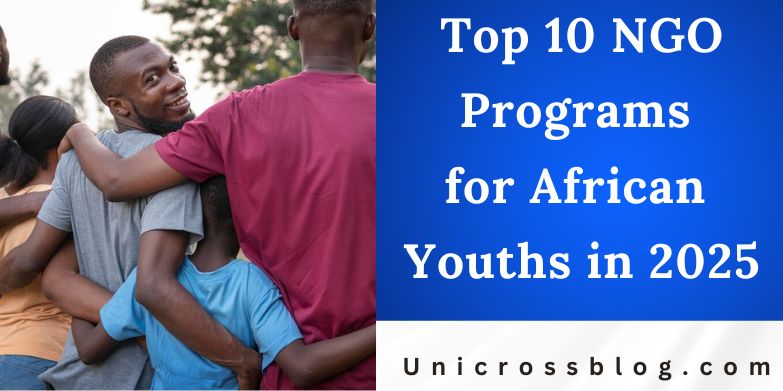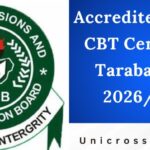NGO Programs for African: Africa’s youth population is a powerhouse of potential, representing over 60 percent of the continent’s more than 1.4 billion people as of 2025. With projections showing that by 2050, one in three people aged 15 to 34 worldwide will be African, investing in young minds is not just a moral imperative but an economic necessity. Yet, challenges like high unemployment rates, which hover around 30 percent in sub-Saharan Africa, limited access to quality education, and barriers to entrepreneurship persist. Non-governmental organization programs stand at the forefront of tackling these issues, offering pathways to skill-building, leadership development, health education, and sustainable livelihoods.
In 2025, NGO initiatives for African youth emphasize innovation, inclusivity, and scalability. They leverage technology, community partnerships, and global funding to empower young people from diverse backgrounds, including rural areas, urban slums, and conflict zones. These programs foster resilience, drive social change, and contribute to the African Union’s Agenda 2063 vision of a prosperous, integrated continent. From entrepreneurship bootcamps to climate adaptation challenges, they equip youth with tools to not only survive but thrive. This article spotlights the top 10 NGO programs making waves in 2025, selected based on their reach, impact metrics, and alignment with youth priorities like jobs, education, and health. Each program highlights real stories of transformation, underscoring how targeted support can unlock Africa’s demographic dividend.

Top 10 NGO Programs for African Youth in 2025
1. Tony Elumelu Entrepreneurship Programme (TEEP) by Tony Elumelu Foundation
This flagship initiative, now in its 11th year, remains a cornerstone for aspiring African entrepreneurs. In 2025, TEEP provides seed capital of up to 5,000 USD, mentorship, and business training to 1,000 young founders annually across 54 countries. Focusing on sectors like agritech, fintech, and renewable energy, the program has launched over 18,000 businesses since inception, creating more than 500,000 jobs. Aisha, a 24-year-old Kenyan farmer, used her grant to develop a solar-powered irrigation system, tripling her yields and employing five locals. By prioritizing women and rural youth, TEEP addresses gender disparities, with 40 percent of 2025 beneficiaries being female. Its hybrid online-offline model ensures accessibility, even in remote areas like northern Nigeria.
2. YUVA Academy by YUVA Mauritius
Leading in youth leadership, YUVA’s academy trains over 5,000 young Mauritians and extends to East African partners in 2025. The program blends workshops on public speaking, project management, and civic engagement with community service projects. Participants like Jamal, a Tanzanian teen, led a beach cleanup that engaged 200 peers, raising awareness on plastic pollution. With a focus on holistic development, including mental health sessions, YUVA reports a 70 percent increase in participants’ confidence levels post-training. Expanding digitally this year, it reaches youth in Madagascar and Seychelles via free webinars, making empowerment inclusive for those without travel resources.
3. Educate! Youth Employment Program
Operating in Uganda, Rwanda, and Kenya, Educate! equips out-of-school youth aged 16 to 24 with practical skills for self-employment. In 2025, the program serves 20,000 learners through school-based and mobile units, emphasizing financial literacy, sales, and digital marketing. Randomized evaluations show graduates earn 50 percent more within six months. For instance, 22-year-old Rwandan Sarah started a tailoring business after learning inventory management, now supporting her family and hiring apprentices. By integrating rapid feedback loops, Educate! refines curricula yearly, ensuring relevance to local markets like Nairobi’s gig economy.
4. Youth Impact Health and Education Initiatives
Based in Botswana but scaling across southern Africa, Youth Impact delivers peer-led programs on sexual health, nutrition, and literacy to 15,000 adolescents in 2025. Using gamified apps and community clubs, it boosts school retention by 25 percent in participating areas. A standout story is Thabo, a 17-year-old from rural Zambia, who, after a life skills workshop, became a peer educator, reducing teen pregnancies in his village by 15 percent. The program’s emphasis on youth facilitators ensures cultural sensitivity, while partnerships with governments enhance sustainability.
5. Mastercard Foundation Scholars Program at African Universities
This expansive effort funds full scholarships and leadership training for 30,000 African youth in 2025, partnering with institutions like the University of Rwanda and Makerere University. Covering tuition, stipends, and internships, it targets underprivileged students in STEM and agriculture. Beneficiary Kwame from Ghana, studying agronomy, developed a drought-resistant crop variety during his internship, benefiting 1,000 farmers. With a focus on alumni networks, the program fosters lifelong mentorship, helping graduates launch ventures or secure jobs in high-growth sectors.
6. ForAfrika Sustainable Development Youth Projects
Aimed at reaching 20 million Africans by 2032, ForAfrika’s youth tracks in 2025 include vocational training in water management and food security across South Africa and Mozambique. Over 10,000 young participants receive hands-on certification, leading to 60 percent employment rates. Lerato, a 19-year-old South African, trained in sanitation engineering and now installs eco-toilets in her township, earning a steady income. The program’s community-led design adapts to local needs, like drought-prone regions, promoting resilience against climate change.
7. UNAOC Youth Solidarity Fund
The United Nations Alliance of Civilizations awards 25,000 USD seed grants to 15 youth-led projects in 2025, promoting intercultural dialogue in West and East Africa. Themes include peacebuilding and migration awareness. In Nigeria, a team of young activists used funds to create interfaith sports leagues, reducing community tensions in Jos. With rigorous impact tracking, the fund reports enhanced social cohesion in 80 percent of grantees. Its emphasis on collaborative proposals empowers diverse groups, from urban refugees to rural nomads.
8. YouthADAPT Challenge by Global Centre on Adaptation
Tackling climate action, this competition funds 20 youth enterprises with up to 100,000 USD each in 2025, focusing on 4IR technologies like AI for flood prediction. Targeting ages 18 to 35, it spans 20 countries, with winners from Senegal innovating mangrove restoration drones. Participant Fatima’s app alerts farmers to weather risks, saving crops worth thousands. Backed by the African Development Bank, the challenge includes accelerator support, turning ideas into scalable solutions for Africa’s green economy.
9. Paradigm Initiative Digital Inclusion Program
Addressing the digital divide, this initiative trains 8,000 youth in Nigeria, Kenya, and Zimbabwe on cybersecurity and e-commerce in 2025. Through bootcamps and rights advocacy, it combats online exploitation while building freelance skills. Oluwaseun, a 21-year-old Nigerian, launched a web design agency post-training, serving clients continent-wide. With 70 percent female enrollment, it challenges gender barriers in tech, fostering economic independence in informal sectors.
10. IkamvaYouth Tutoring and Mentorship Network
In South Africa’s townships, IkamvaYouth pairs 4,000 high schoolers with volunteer mentors for weekly sessions in 2025, boosting matric pass rates by 40 percent. The model emphasizes career guidance and university prep. Zanele, from Khayelitsha, credits the program for her engineering scholarship. By creating youth alumni tutors, it builds a self-sustaining cycle, extending impact to underserved communities.
These programs collectively reach millions, blending local insights with global expertise to catalyze change. They not only provide immediate skills but also nurture a generation of leaders ready to shape Africa’s future.
READ ALSO: State-Level Youth Empowerment Programs in Nigeria 2025
FAQs
What makes these programs stand out in 2025?
They prioritize measurable outcomes, like job creation and income boosts, while adapting to trends such as digital tools and climate resilience. Many incorporate youth input in design for greater relevance.
Who can apply to these NGO programs?
Most target Africans aged 15 to 35, with preferences for underrepresented groups like women, rural dwellers, and refugees. Eligibility varies; some require proposals, others open applications.
How do these programs support entrepreneurship?
Through seed funding, mentorship, and market linkages, as seen in TEEP and YouthADAPT, helping youth turn ideas into viable businesses amid Africa’s 12 percent startup growth rate.
Are there opportunities for non-Africans or diaspora youth?
Primarily for Africans, but some like Mastercard Scholars welcome diaspora applicants studying on the continent, promoting cross-border collaboration.
What is the application process like?
Typically online, involving essays, CVs, or project pitches. Deadlines cluster in Q1 and Q3; prepare by building a portfolio of volunteer work or small projects.
How can I measure the impact of participating?
Programs offer tracking tools, like alumni surveys or income logs. Many report 50 to 70 percent success in employment or skill gains within a year.
Are there costs involved?
Most are free or fully funded, covering travel and stipends. Some require commitment to post-program service.
How do these programs address mental health and well-being?
Increasingly, with integrated sessions in YUVA and Youth Impact, recognizing holistic growth amid rising youth stress from economic pressures.
Can I volunteer or partner with these NGOs?
Yes, many seek mentors or local facilitators. Contact via their sites for opportunities to amplify reach.







